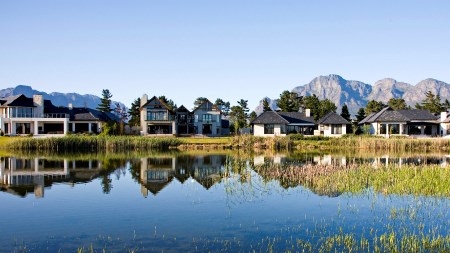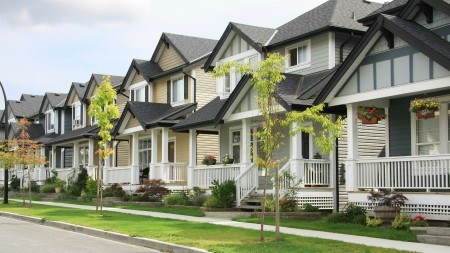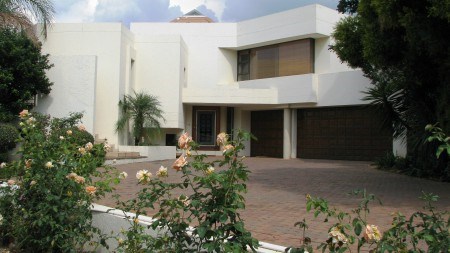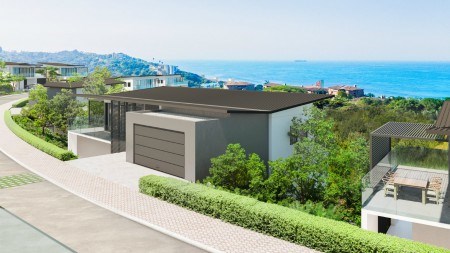With more than just an ideal lifestyle to offer, South Africa’s residential estates are proving to be a great investment for buyers who seek value for money and higher returns.
Much has been said about the attributes of living on a residential estate, in terms of its ability to offer a secure and ideal environment. But aside from lifestyle appeal, the investment value achievable in terms of capital appreciation and potential rental income, is another increasingly important component in residential estates which appeal to property buyers across the country.
Estate properties have staying power and usually perform better than the value of the property in neighbouring suburbs.
-Dr Andrew Golding, CE of the Pam Golding Property group.
Statistics provided by Lightstone Property for the national residential property market for August 2016 to date, reveal that house prices (based on actual sales) reflect an average price inflation of 5.8 percent.
In contrast, the Association of Residential Communities (ARC) website states that annual house price inflation in estates is 7.5 percent.
According to Dr Golding: “In terms of value, currently estates account for around 22 percent of the market’s total sales value - up from 20.5 percent pre-recession and remaining fairly stable since late 2013, while unit sales in estates currently stand at around 14 percent of total market sales.”
While the statistic is on a gradual declining trend since late 2012 for the Gauteng province, this region still holds the largest percentage of the total value of estate sales in South Africa, which sits at approximately 55%.
The Western Cape region has a smaller, but growing number of total estate sales, which is close to 29%.
Interestingly, in both Gauteng and the Western Cape the R3 million-plus price band accounts for a growing portion of total estate unit sales.
And while Johannesburg’s estate market is the largest by value, this margin is beginning to decline when compared to the likes of other major metros combined - like Pretoria in Tshwane Municipality (who has the largest total number of units sold in estates) and the city of Cape Town. The value collectively generated by these two metros in particular, is increasing at a faster pace than that of Johannesburg.
Residential estates outperform residential properties:
According to ARC there are currently approximately 6 000 gated communities in South Africa with a total value of some R650 billion. These gated communities comprise some 320 000 residential properties, which hold an average value of R2 million per property, which is three times greater than the estimated national average of R700 000 per home outside of gated communities.
Additional statistics from ARC reveal that golf estates only hold about 12% of the total number of estates in South Africa.
The desirability of living on a secure estate continues to increase exponentially, over and above the investment potential and price appreciation it offers buyers.
According to Dr Golding: “Living on an estate is about far more than security. There are numerous factors which attract people across all generations to an estate lifestyle. The new trend is towards so-called lifestyle estates which encompass ‘work, live, play, shop’ – all within a secure environment which provides a sense of community as well as easy access to educational facilities.”
Dr Golding says that some estates go as far as offering on-site schools as well as a number of leisure amenities which provide a wide range of services, tailored for a broader lifestyle. These include gyms, sporting facilities and even shopping complexes.
“Generally these estates are situated in metropolitan South Africa, including new metro growth nodes where the cities or towns are expanding. These include Fourways in Gauteng, the rapidly expanding KwaZulu-Natal North Coast Corridor as well as Knysna on the scenic Garden Route” says Dr Golding.
There is a strong demand for estate living among numerous areas in the Western Cape, like Helderberg, Somerset West and Stellenbosch.
This demand is fuelled by a number of factors such as:
- The safety and security measures within gated communities
- The improved quality of lifestyle on offer
- The various leisure and sports activities available
- The aesthetic and scenic appeal estates have
- The quality and design of houses in residential estates
- The resale potential of properties on estates
What also makes residential developments more desirable is the ability to have shared costs and hassle-free estate management as opposed to the high utility expenses generally incurred for large, freestanding properties.
A ranking of South Africa’s top 10 estates by New World Wealth, revealed that all ten estates are in fact located in prime areas, each attracting residents with its own unique appeal.
And out of these 10 estates, nine are marketed by Pam Golding Properties, namely Val de Vie, Zimbali, Fancourt, Steyn City, Pezula, De Zalze, Atlantic Beach, Highland Gate and Arabella.
Statistics shared by Lightstone Property reveal that while some high end buyers are investing considerable capital in building their iconic, dream homes with cutting edge designs and the latest in technology and eco-friendly features, estate living on the other hand is also becoming more accessible and attracting a younger generation of home buyers, with in excess of 70 percent younger than 49 years of age.
“Catering for this market, which includes first time buyers, many estates have introduced sectional title opportunities starting at prices below the R1 million mark and offering excellent value for money,” adds Dr Golding.
And at the other end of the spectrum, luxury homes substantial in size are being constructed which are estimated to fetch prices from R20 million to R30 million and upwards once complete, concludes Dr Golding.





